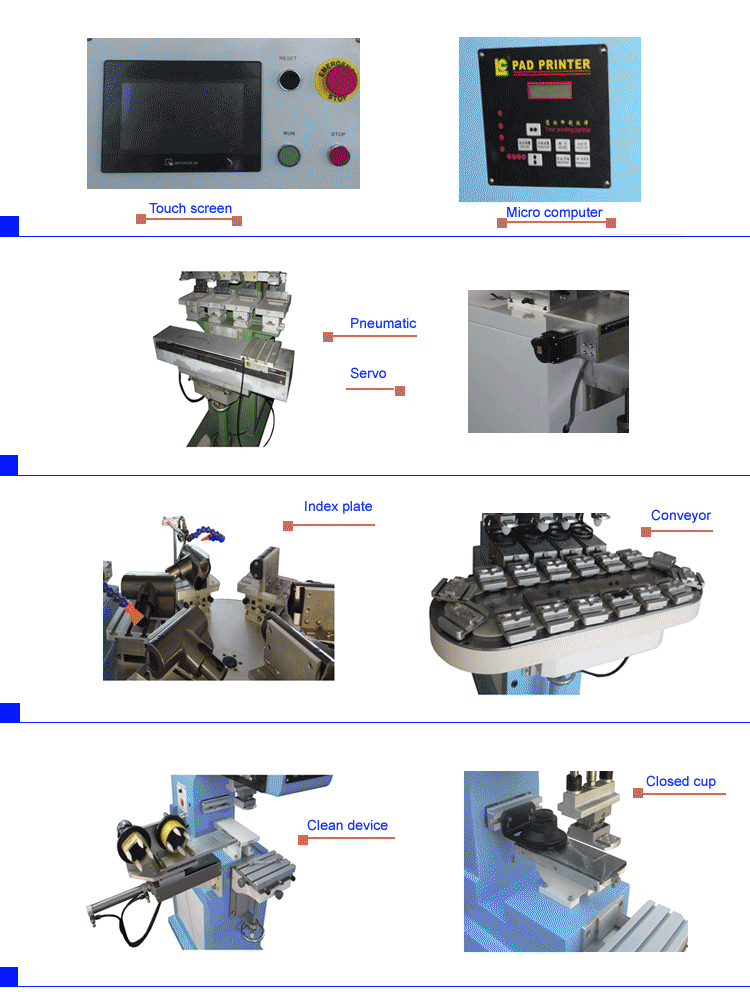Compared with offset printing machines, pad printing machines are neither high-precision printing machines nor complex printing machines. However, the use of pad printers is indeed very wide. It can print on almost all product surfaces and is also suitable for almost all types of materials. It can be found in almost all industrial fields. When you need to buy a pad printer, you may consider many factors, but you need to carefully identify the following technical factors.
1) Operating system
The operating system of the pad printer mainly consists of a microcomputer interface and a man-machine dialogue interface. The early pad printers were based on microcomputer interface operations, and a lot of data has been stored in the pad printers. Because the structure of the pad printer is not complicated and does not require too much parameter adjustment, the pad printer of the microcomputer has long occupied the mainstream position. However, with the increase in the complexity of pad printers and the improvement of printing accuracy, the use of man-machine interface operations has become more and more common. Many parameters of pad printers can be set and input by themselves, making the operation more Simple and easier to realize data management.
2) Action form
Today, pad printers use pneumatic means to control the action mechanism to execute the printing process. Pneumatic mode is simple, compact and easy to maintain. However, the positioning accuracy of the pneumatic device is not high, such as the down stroke of the pad printing rubber head, the movement stroke of the shuttle table and the turntable table during the position change process will cause deviations. For those customers with high requirements and high standards, it is probably an ideal choice to use a servo motor to drive. Ordinary plastic products printing, pneumatic device is possible, but for the uniform thickness of the ink layer, high overprinting accuracy, some mobile phone lenses, display screens and other products, the use of servo system is a prerequisite for obtaining high-quality prints.
3. Workbench style
There are many types of worktables, turntable worktable, shuttle worktable and disc worktable, the first two are pneumatically driven. For those products that are not demanding, these two structural forms can achieve the goal very well, but the shortcomings of pneumatic positioning are obvious. In recent years, there has been a trend of adopting the index plate as the workbench structure. The index plate is controlled by a precision divider, and the rotation angle is highly accurate, which has a good performance for the uniformity of the product printing position.
4 Auxiliary structure of pad printer
Any printing machinery is continuously improved to finally liberate the operator's work intensity. Pad printers are no exception. As the market, especially high-end users, have higher and higher requirements for pad printers, it has become more and more common to install various auxiliary structures on pad printers, such as automatic plastic head cleaning devices. Automatic fixture turning device, IR drying device, loading and unloading manipulator, etc.

